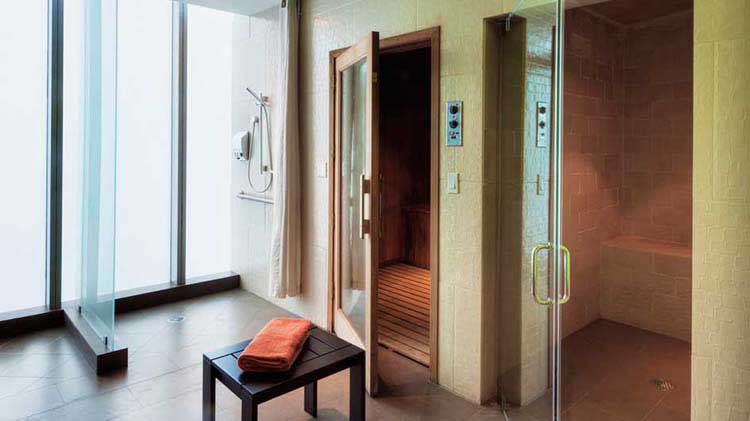Sauna benefits, types and safety tips
A good steam bath is invigorating. Learn the benefits of saunas and the best way to use them with these simple but important safety tips.
Sauna benefits
A sauna helps you to relax, and it may have other health benefits when used safely. It is commonly a room heated to between 70° to 100° Celsius or 158° to 212° Fahrenheit and uses dry heat with a bit of humidity. When a person uses a sauna, their skin temperature rises and heavy sweating starts.
A few noted sauna benefits include:
- Elimination of toxins from the body
- Reducing stress levels
- Increasing and improving circulation
- Reducing muscle soreness
- Improving joint movement
- Easing arthritis pain
- Improving cardiovascular health
- Promoting healing
Sauna use is generally safe but may not be appropriate for everyone. Always check with a medical professional and be knowledgeable before visiting a sauna.
Types of saunas
There are several types of saunas, based on how the room is heated. Some types include:
- Electrically heated: This is a sauna room with an electrical heater attached to the floor and has low humidity.
- Infrared room: This is a sauna that has special lamps that use light waves to heat a person's body rather than the entire room. They are also called far-infrared saunas (FIRS). Temperatures are typically about 60° Celsius, 140° Fahrenheit and lower than other saunas, but allow the person to sweat in a similar way.
- Wood burning: This is a sauna room that is heated using wood and sauna rocks and is usually low in humidity and high in temperature.
- Steam room: A steam room differs from a sauna in that it uses steam. As compared to a sauna that uses dry heat, a steam room provides humid and moist heat.
Common risks
There may be risks with the use of a sauna if you have the following conditions. Always consult a physician before using a sauna if you have:
- High blood pressure or heart problems. Saunas make your heart work harder than normal.
- Known medical conditions. Some of these include high blood pressure, diabetes, heart disease, abnormal heart rhythm, angina and other conditions.
- Just finished exercising. After strenuous exercise, let your heart rate come down to resting levels first.
- Recently consumed alcohol or recreational drugs. Using the sauna afterwards could affect your heart, impair sweating and produce overheating.
- Take certain medications. Don't use a sauna if you take medications that interfere with your body's ability to regulate temperature or make you drowsy.
- Are pregnant. According to whattoexpect, sauna use during pregnancy could lead to dizziness, dehydration or lower blood pressure.
Safety tips
If you're able to use the sauna, keep these safety tips in mind:
- Keep sessions short. You can build up your tolerance for the heat over multiple visits.
- Limit sessions to 15 to 20 minutes. Even healthy individuals should limit their time to 15 to 20 minutes in a sauna.
- Monitor how you feel. If you are sensitive to the heat, feel dizzy, nauseous or begin to feel uncomfortable, leave the sauna immediately.
- Stay hydrated. Always hydrate beforehand, and drink two to four glasses of cool water after each session. Drink mineral water or juice to replace electrolytes lost through sweating.
- Use the buddy system. Bring a friend or family member with you in case problems do occur.
- Remove jewelry. Metal jewelry, including rings and small earrings, can heat up very quickly and cause skin irritation or burning.
- Protect your hair. Sauna heat can leave your hair shafts dry and brittle. A towel or shower cap can help protect it.
- Dress appropriately. Wearing loose fitting clothes, a swimsuit or a towel is good since heavy clothing can lead to overheating.
- Rest and cool off afterwards. Lie or sit down for at least 10 minutes, then take a cold shower to help bring your body temperature to normal levels.
Sauna use can be very good for your body and relaxing when used safely.




